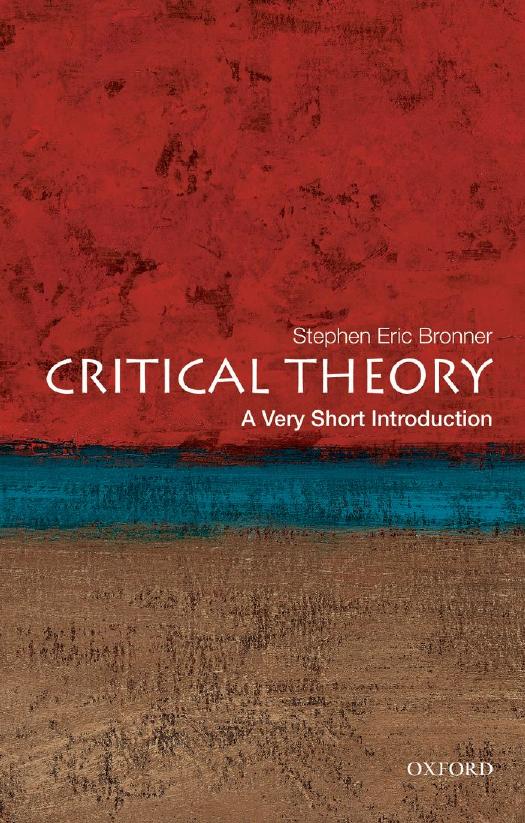Critical Theory: A Very Short Introduction by Stephen Eric Bronner

Author:Stephen Eric Bronner [Bronner, Stephen Eric]
Language: eng
Format: epub, pdf
Tags: Philosophy, Criticism, Movements, Critical Theory, Social, General
ISBN: 9780190692681
Google: EMU2DwAAQBAJ
Publisher: Oxford University Press
Published: 2017-09-22T20:32:41+00:00
What next?
Max Horkheimer and Theodor W. Adorno intended to confront the limits of the Enlightenment from the standpoint of enlightenment itself. Their point of departure was the erosion of autonomy. Progress is seen by them as generating barbarism and the critique of capitalism is situated within a broader âanthropology of domination.â Their undertaking stands squarely within the dialectical tradition of Marxism. But the positive moment underpinning their critique never becomes concrete or clear. Because the whole is false, and mediations are never introduced, critical theory becomes compelled to consider negation as its guiding principle. The totally administered society is a product of teleology in reverse. Reification is creeping into every crevice of society and instrumental rationality, wherever it appears, is evincing yet another form of domination. Horkheimer and Adorno provide no criteria for drawing distinctions. For them, the basic situation is obvious: instrumental rationality is the problem, the commodity form is the culprit, and the culture industry is the enemy. There is no alternative. There is only an ongoing resistance waged in the name of an always elusive, if supposedly genuine, experience of individuality.
Dialectic of Enlightenment was intended to have a sequel. Its authors might have felt that they had gone too far. Horkheimer had hopes for a âpositive dialectical doctrine which has not yet been written.â The Enlightenment seemed to require rescuing or reclaiming. But that never came to fruition. There is much debate regarding why not. Some look to the fragmentary organization of the workâits use of aphorisms, montage, and its anti-systemic character. Others highlight the authorsâ intellectual investment in negation. Still others point to their break with the Left and their fear of political engagement. Yet, there might be a different reason. Its authors might simply have found it impossible to offer a âpositive dialectical doctrineââbecause they no longer had anything âpositiveâ to say.
Download
Critical Theory: A Very Short Introduction by Stephen Eric Bronner.pdf
This site does not store any files on its server. We only index and link to content provided by other sites. Please contact the content providers to delete copyright contents if any and email us, we'll remove relevant links or contents immediately.
| Anthropology | Archaeology |
| Philosophy | Politics & Government |
| Social Sciences | Sociology |
| Women's Studies |
Born to Run: by Christopher McDougall(7127)
The Leavers by Lisa Ko(6948)
iGen by Jean M. Twenge(5416)
Sapiens by Yuval Noah Harari(5370)
Spare by Prince Harry The Duke of Sussex(5197)
The Kite Runner by Khaled Hosseini(5179)
Machine Learning at Scale with H2O by Gregory Keys | David Whiting(4313)
Bullshit Jobs by David Graeber(4190)
Never by Ken Follett(3957)
Goodbye Paradise(3810)
Livewired by David Eagleman(3774)
Fairy Tale by Stephen King(3399)
A Dictionary of Sociology by Unknown(3085)
Harry Potter 4 - Harry Potter and The Goblet of Fire by J.K.Rowling(3074)
The Social Psychology of Inequality by Unknown(3031)
The Club by A.L. Brooks(2925)
Will by Will Smith(2920)
0041152001443424520 .pdf by Unknown(2846)
People of the Earth: An Introduction to World Prehistory by Dr. Brian Fagan & Nadia Durrani(2738)
